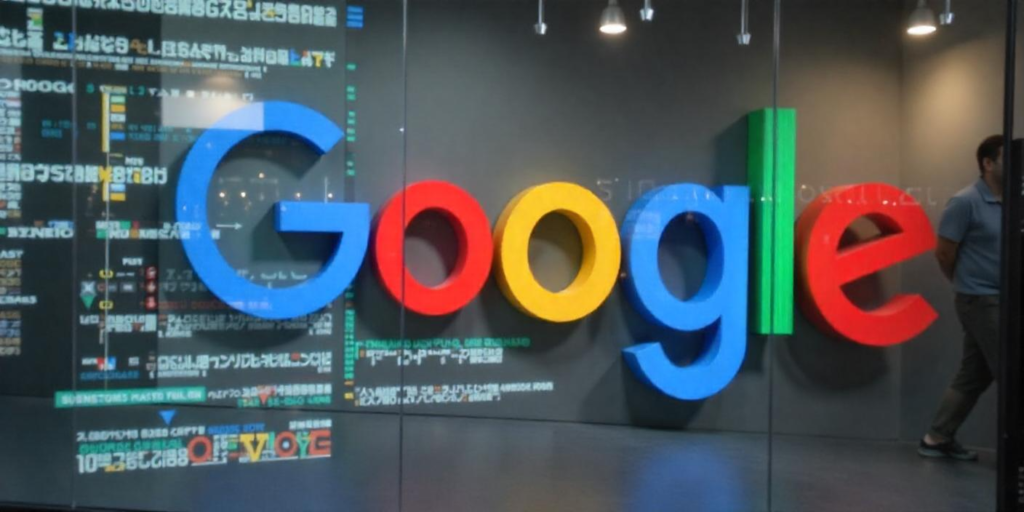Share This Article
Introduction
In a landmark decision on April 17, 2025, U.S. District Judge Leonie Brinkema ruled that Google, a subsidiary of Alphabet Inc., illegally maintained monopolies in key segments of the online advertising technology market. This ruling marks a significant moment in antitrust enforcement, highlighting the growing scrutiny of Big Tech’s dominance in digital markets.
In a watershed moment on April 17, 2025, U.S. District Judge Leonie Brinkema ruled Google, a subsidiary of Alphabet Inc., to have illegally maintained monopolies in vital segments of the online ad market. The ruling brings attention to the ongoing scrutiny of Big Tech companies and their ability to monopolize digital markets.
The Essence of the Ruling
A Grasp of the Matter
Since time immemorial, Google and his 17 associates, the attending state attorneys general, have accused Google of monopolizing the digital advertising sector. The issue mainly addressed, were two: Business Insider
His Honor Judge Brinkema made a finding that the Google platform has unlawfully obtained a monopoly under the Sherman Act against its competitors.
Google Practices
The court enumerated a number of Google’s practices that have bolstered its monopolistic position:
- Service Tying: Tying its ad server and ad exchange services together, Google made it an almost insurmountable barrier for publishers to adopt a competing product.
- Restrictive Contracts: Contracts under which the publishers were obliged to not use rival ad technologies.
Forbes - Technological Integration: Built to work best with their own services actually disadvantage competitors.
Implications of the Ruling
Possible Remedies
The court offered considerable latitude for remedies, including the following:
- Divestiture: Orders that Google divest part of its ad tech business, including Google Ad Manager.
- Business Model Changes: Orders that change the business model under which Google runs its ad services to make them fairer to competition.
All these remedies are directed toward attaining restored competition in the digital advertising market and prevention of further chance of monopolization.
Google’s Reaction
Google has said that it plans to appeal the ruling, resting on claims that its ad tech tools are very competitive and good for users. It says that publishers choose its services for the effectiveness with which they compete, not because they have been pressured in any way.
The Bigger Picture
Historical Antitrust Cases
Previous to this occasion, Google had yet other antitrust troubles. In another case, Judge Mehta ruled that Google unlawfully maintained its monopoly power in the search engine market by resorting to anticompetitive contracts, viz., paying third parties such as Apple in order to have Google installed as a default search engine.
Global Perspective
In other parts of the world, Google is facing scrutiny for the same reasons. The Competition and Markets Authority of the UK has levied charges against Google for anti-competitive behavior in the ad tech market, and therefore their dominance has become a global concern.

The Future of Digital Advertising
The ruling has the potential to transform the digital advertising landscape:
- More Competition: New avenues for rival ad tech companies to enter the market.
- Innovation: Encouragement for the birth of new advertising technologies and platforms.
- Transparency: A trend toward greater scrutiny of business practices in the ad tech industry.
These changes are intended to bring about a more level playing field and competition.
Putting the order into Perspective
Primary Findings
Essentially, the finding of the judge involves the fact that Google controls two of the most significant components of the advertising technology ecosystem, namely:
- Publisher Ad Servers: Google’s DoubleClick for Publishers-DP4 or DFP-Platform is the tool through which the publisher has managed his advertisement inventory.
- Ad Exchanges: An area where Google AdX gives sense to the buying and selling of digital advertising space through real-time bidding.
The court determined that Google had willfully acquired and maintained monopoly power in these markets by engaging in a series of anticompetitive activities that harmed competition, publishers, and consumers.
Encompassing Anticompetitive Practices
The judgment elaborated sundry arrangements which made this dominance even more an established fact.
- Tying Arrangement: Chrome was tied with its other disqualified subsidiary ad server, DFP, with its own ad exchange, AdX, UO essentially deprived publishers with a choice between both services; they have no option but to use both services.
- Manipulating Auction: It was favorable for themselves in the auction which was against the competing one’s exchange.
- Exclusive Contracts: Google had exclusive contracts that effectively forced both publishers and advertisers not to use any competing platforms.
Given the number of practices above, competition and innovation were smothered altogether in digital adspaces.
Penalties to Expect in the Digital Advertising Marketplace
Prescribed Remedies
The ruling thus paves the way for possible dramatic organizational changes in Google ad tech. Suggested remedies include:
- Divestiture: Compelling divestiture of a portion of its ad business, like Google Ad Manager, to effect a market reduction in dominance.
–Operational Restrictions: Prohibiting Google from tying services or auction manipulation as a reestablishing act to restoring the equilibrium among competition within the digital advertising ecosystem.
Broader Industry Impact
This is only the tip of the iceberg in expanding antitrust waters against the largest tech companies. More tech companies – including but not limited to Meta, Amazon, and Apple – are being investigated, thereby signalling a move towards stronger regulations in relation to digital markets.
Google Reactions and Future Results
Google says it will appeal, and in so doing argues that its ad tech tools are what publishers choose for efficiency and cost. Google rather maintains that its actions never damaged competition, but instead created benefits for users and advertisers.
The appeal decision and the remedies that follow will have sweeping consequences for Google’s business model, as well as the organization of digital advertising worldwide.
Conclusion
Completely, the order against Google is historical in regulating digital markets. By enforcing anticompetitive practices in advertising technology, this rule has laid the groundwork for future enforcement actions.



